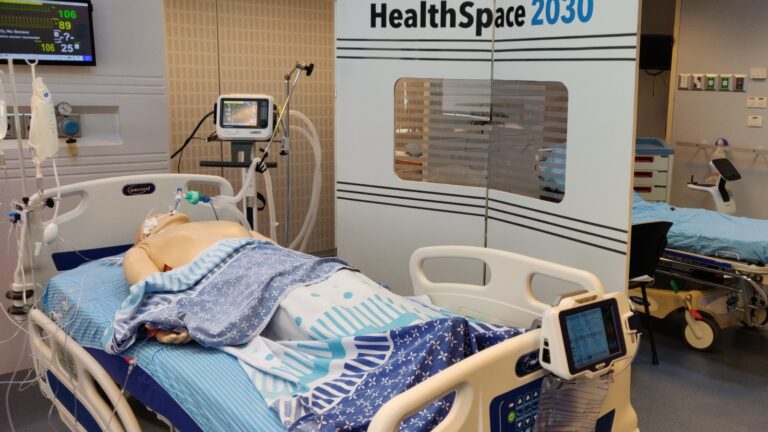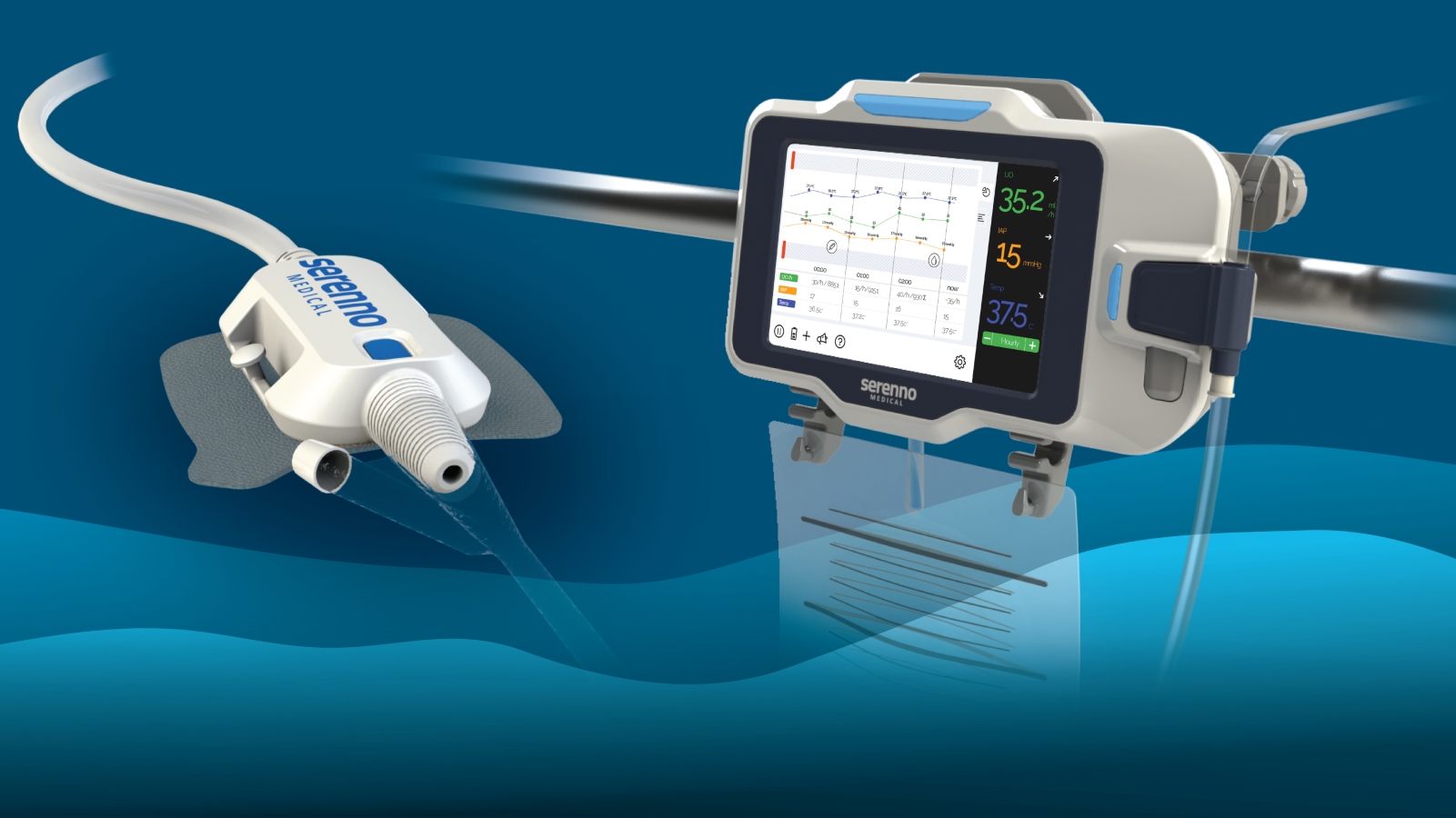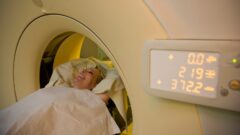
Hospital ‘ICU of the future’ prepares Israel for second corona wave
Sheba Medical Center showcases simulation of Covid-19 inspired patient room with techs for optimal care and communication at less risk to staff.
by Abigail Klein LeichmanHealthSpace 2030, the high-tech ICU room of the future, was unveiled Tuesday in a Zoom webinar from Sheba Medical Center in Ramat Gan.
The 11 technologies integrate sensing, monitoring, AI, communication, augmented reality and robotic technologies to maximize care and comfort while minimizing risk to staff.
Nearly all the products in HealthSpace 2030 were designed in Israel for global use by new and established med-tech companies as well as various Israel Defense Forces units and Israeli defense contractors.
“Version 1.0” of HealthSpace 2030 is designed for Covid-19 patients but is relevant to other intensive-care scenarios and will be updated regularly, said Dr. Eyal Zimlichman, chief medical officer and chief innovation officer at Sheba Medical Center and head of its ARC@Sheba Innovation Center.
ARC stands for Accelerate Redesign Collaborate. Zimlichman emphasized that feedback on all the technologies being piloted at Sheba is shared with partner hospitals in North America and Europe.
The HealthSpace 2030 presentation was organized by ARC@Sheba and the Sheba-based MSR Israel Center for Medical Simulation.
“We wanted to bring all the technologies into one space to see how they work in the hospital environment and with the hospital team,” said Zimlichman. “This space allows companies to come in and help us design the future.”
Zimlichman said Sheba expects to adopt these technologies widely over the next few years, “hopefully sooner than 2030. Covid gave us the opportunity to accelerate innovation and especially digital health solutions. We have much more in store.”
Israeli products showcased in the simulation were:
Vocalis Health: Installed on the patient’s phone, Vocalis detects changes in voice and breathing as markers for progression of diseases. In the future it could enable diagnosis of Covid in the asymptomatic phase.
Tyto Care: The modular telemedicine kit enables self-examination of temperature and lung sounds, guided remotely by the doctor.
Temi personal robot: aids in remote medical examinations and in video communication between the patient and medical staff and family.
EarlySense: This under-the-mattress monitor uses artificial intelligence (AI) to detect and alert to deterioration in respiration, the most critical vital sign in Covid patients.
CLEW Medical: AI-based predictive analytics for the ICU can help with tasks from locating available beds to providing early warning of patient deterioration to proactively managing disease severity and workload.
AnyVision: Face-recognition technology uses existing hospital surveillance cameras to reveal whether a Covid-positive staff member was in contact with other staff members, at what distance and for how long.
Serenno: This startup’s unique monitoring device allows ICU staff to measure urine output without going to the bedside. The device transmits the data digitally and may be further developed to test the urine as well.

Uniper Care: The unit allows patients easily to control communication with staff and family and can be used for patient entertainment and education. Sheba also used this technology to facilitate group therapy in its Covid psychiatric unit.
Elbit Systems: A communication device from this defense contractor enables medical personnel to talk, chat or text over 3G or Wi-Fi; and to direct requests automatically to the closest clinician with the needed expertise.
XRHealth: The virtual reality platform is being employed for wellbeing of staff as well as patients, with relaxing virtual reality experiences and games. The company recently received a grant from the Israel Innovation Authority to develop telehealth solutions for Covid-19.
More News

Make way for John the Baptist’s favorite snack – locust dipped in honey
By Naama Barak
4 Israeli med-tech startups to share US-Israeli $1m grant
By ISRAEL21c Staff
Study: Older adults worry more for others than themselves
By Brian Blum
Covid-19 treatment developed at Israeli research institute
By ISRAEL21c Staff
Celebrate all things Israeli wine, even from afar
By Naama Barak
Self-disinfecting tech could make N95 facemasks reusable
By Brian Blum
6-year-old discovers rare 3,500-year-old tablet
By Abigail Klein Leichman
As corona crisis eases, Israel opens for business again
By Naama Barak
ASOS, Adidas switch to Israeli tech to model clothes online
By Abigail Klein Leichman
In first, Asiatic lions welcome two cubs at Jerusalem zoo
By Naama Barak
Jerusalem tech startup scene has grown 102% since 2012
By Abigail Klein Leichman
Two Israeli firms receive ‘Oscars of the Internet’ honors
By Abigail Klein Leichman
Study: 70% of Israel’s Covid-19 cases came from America
By Brian Blum
Israeli scientists develop corona-busting disinfectant that stays active
By ISRAEL21c Staff
9 Israeli digital health startups to watch
By Abigail Klein Leichman
Dead Sea Scrolls secrets revealed live online this week
By ISRAEL21c Staff
Cool moving images for your Zoom meeting background
By Abigail Klein Leichman
Israeli scientists develop 3D sperm-cell imaging tech
By Naama Barak
Aidoc to help radiologists detect Covid-19 on CT scans
By Abigail Klein Leichman
European Investment Bank banks on Israeli cell therapy
By Naama Barak